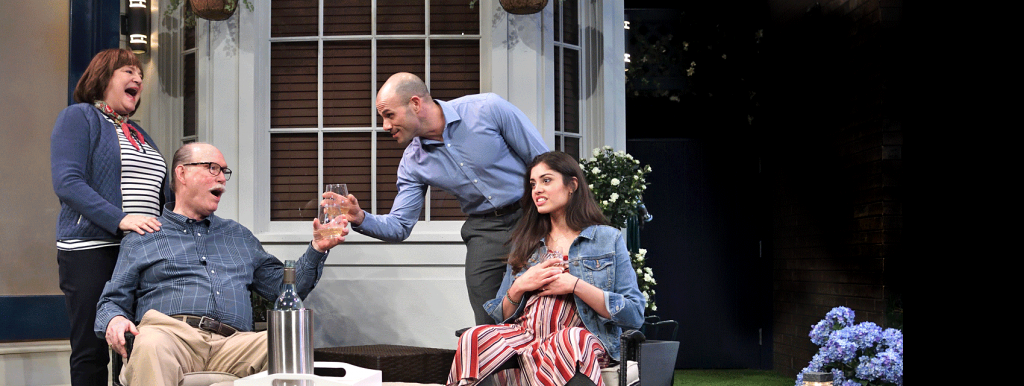2/6/2018
Trinity Rep’s Braxton Crewell recently posed a few questions to Brown/Trinity Rep 2015 graduate Whitney White about the production of Othello she is preparing to direct at Trinity Rep.
Braxton Crewell: What excites you most about Othello?
Whitney White: The impossibility of the piece. Here is a play about a man who is an “other” — let us say black — who has risen to the highest ranks of society, takes a white wife, and is convinced by his closest friend and fellow soldier that she is unfaithful. As a result, Othello, his wife, Iago’s wife, and an opportunist all lose their lives. At its heart, Othello is a tumultuous piece of theater filled with many types of hate — hatred of women, minorities, war and more. Yet the piece contains some of the most beautiful poetry that exists in western literature. Somehow, despite all that is ugly in it, we desire to see and experience it. Shakespeare makes us love the villain. When he speaks to the audience, we want more. Yet he is the cause of death, confusion, and destruction. Ultimately what does it mean for us as an audience to enjoy and be delighted by this type story?
Braxton: What is your history with Othello?
Whitney: While studying in the MFA program at Brown/Trinity Rep I discovered an intense love for Shakespeare. I had the privilege of working with Brian McEleney, Thom Jones, Brian Mertes, Annie Scurria, and others and discovered that these texts were great containers for the human experience. The stories are beautiful and have served as the bases of many of the major genres — action, romance, and comedy — that we enjoy today. I also worked on a production of Othello at New York Theater Workshop with Sam Gold that came out of a yearlong collaboration during which I learned so much about the text. It reinvigorated my interest in the piece. And as an African American female director, I felt inspired to explore my take on the world.
Braxton: What is your current idea or theme for the show?
Whitney: Othello for me is a very intense, intimate, and warped relationship play. My idea for the show is to explore by all means necessary what Shakespeare is telling us about relationships and how easy it is to deceive, mislead, and be a danger to those closest to us. He provides many examples of “a couple”: a man and wife, two best friends in the military, a young woman and her close confidant/care taker, and more. In each instance the relationship crumbles and falls apart with dire consequences. My questions are why, how, and what is to be learned from this?
On the other hand, I am also interested in exploring Othello in a contemporary American landscape. The wonderful thing about the piece is that the major societal construct at the heart of it is the military, which is still very strong and present in our country. The tropes of general, soldier, warrior, man, wife, and friend, and themes of paranoia, betrayal, and the systematic effects of living in a violent community are on display in fascinating ways in America today. It’s exciting that this timeless text written for an Elizabethan audience can help us understand ourselves better now.
Braxton: What presents the greatest challenge in the rehearsal room and for audiences?
Whitney: The final act of most Shakespearian pieces tend to be the most difficult to stage. It’s when everything comes out, the bodies pile up, the villains are revealed, and everyone sees the truth. There is a sense of inevitability to it all. But how do you make the inevitable fresh? How do you render it new? How do you capture the element of surprise in such a well-known story? Also — quite literally — what do you do with all those bodies! There’s a little bit of stage magic involved and I’m looking forward to finding our own unique “magic” with the brilliant Trinity Rep ensemble.
Braxton: What does Othello contribute to conversations we have or need to have today?
Whitney: Unfortunately, so much in Othello is still relevant to societal conversations today. The play forces us all to take a harsh look at the effects of prejudice, the subjugation of women, the nature of violence in an armed community, and the lasting effects of ongoing conflict in the middle east. It is quite eerie how much is applicable, even after centuries, to us today. You have to ask yourself why we have these enduring issues and what can be learned from witnessing the humans in this play wrestle with these issues. How can the experience of these characters and their resulting tragedies put us off the course of our own.
